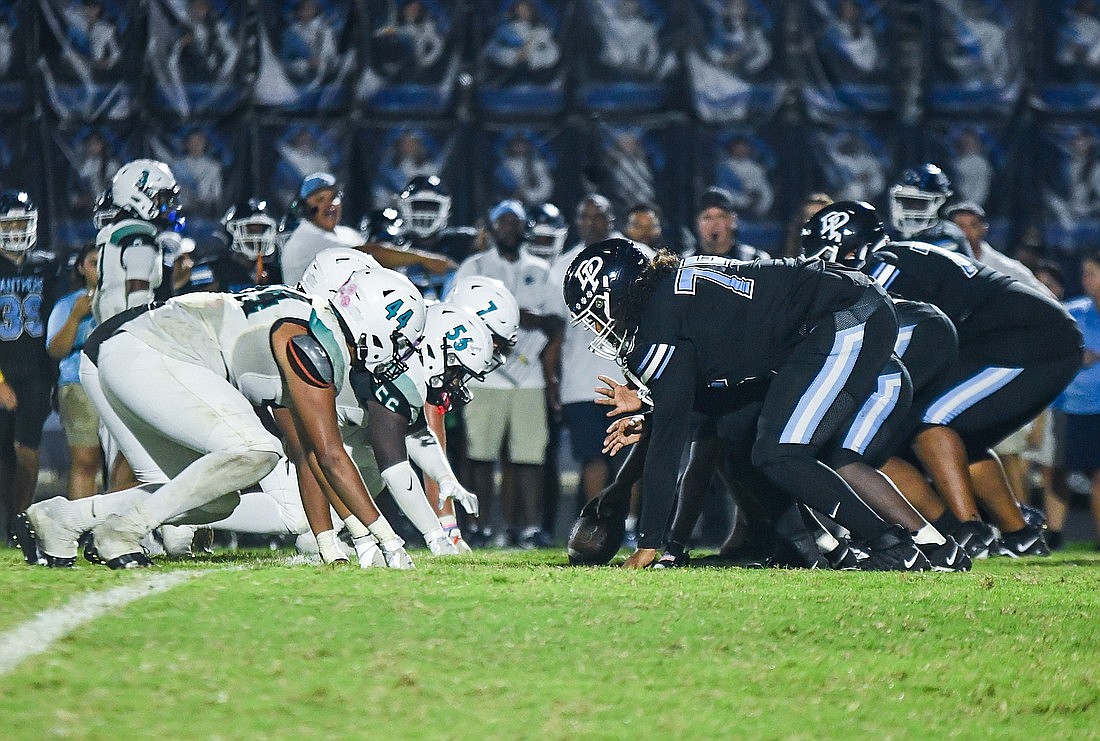- April 21, 2025
-
-
Loading

Loading

I’ve never liked when an answer to a question, request or idea is: ‘That would be difficult to implement’ or ‘That’s too complicated to figure out,’ especially when it comes from those whose job it is to implement things or figure things out.
I don’t like people who aren’t willing to think creatively or who give up when the first, second or 100th hurdle of difficulty appears.
That’s probably why I’ve never loved the arguments against paying college, or now high school, athletes. From my experience, the arguments I’ve heard from the NCAA and others are often procedural or regulatory.
We can’t pay the athletes because they aren’t employees, and if they do become employees, how do we tax them? Or we can’t pay the athletes because we wouldn’t be able to regulate it or create a fair system — and on and on and on it goes.
Those arguments bore me.
They do not address the question at hand, they don’t move anything forward; all they do is bog down the conversation. Instead of telling me why doing the thing is difficult, let’s answer the question about it being the right thing to do, regardless of the difficulty of its implementation.
So when the FHSAA announced that it had drafted a Name, Image and Likeness proposal for its athletes — which would allow Florida high school student-athletes to receive compensation from things like sponsorship deals with brands or starring in commercials for companies — I just knew the arguments against it would be tedious, at best, and, boy, was I right.
The core of this conversation is simple: Should student-athletes be able to receive compensation for their name, image or likeness?
The issue with the arguments against NIL that I’ve seen is, they don’t address the question directly.
Often, when the answer is no, I’ve seen the reasoning be because it’ll be difficult to deal with the ramifications or there are concerns about how transfers will be managed, or countless other procedural and regulatory excuses.
Again, the question above is not being answered directly. I would go out on a limb and say it’s purposefully not being answered because there isn’t an argument against a person being paid for something that has been deemed to be worth a certain value, and if there were, the entire employee/employer system in this country wouldn’t exist.
So why are the athletes being targeted? This conversation doesn’t exist for every other high school student getting compensated for their work, image, name or likeness.
Why can a student who has a popular Twitch page receive compensation for their video game skills or a student who has a large reach on TikTok get compensation for promoting a brand and athletes can’t?
Because in America, we care about our schools’ sports teams — especially our college teams, but also our high school teams — and sometimes we care about them more than the players on the field.
That rooting interest for the team and not the individual player can explain why something that is mostly good for the players and has the possibility of negatively affecting the team you like is a pretty convincing reason to not want to pay the athlete.
But imagine if you didn’t care about your school’s team? Would you care if the players were getting paid? I doubt it.
But what would happen if you didn’t care about your school’s sports teams? Well just take a look around the world and you’ll see athletes getting developed and professional sports teams thriving.
In other countries, they don’t care about schools sports and kids who are great at sports sign contracts with professional teams and work their way through developmental systems. Look at NBA star Luka Doncic, who signed a five-year contract with Spanish basketball team Real Madrid at 13 years old.
That seems like a better system, but who am I to besmirch the good name of “amateur” sports?
To get off my soapbox, paying someone their worth is, and will always be, an inarguable point.
Regardless of the difficulty of creating a system to govern NIL in Florida — which I acknowledge is hard, but that’s the FHSAA’s job — the fundamental issue at hand isn’t difficult at all. Let the athletes get paid what the market wants to pay them.
Sam Albuquerque is the Sports Editor for the Orange Observer. Please contact him with story ideas, results and statistics.
Email: SamA@OrangeObserver.com
Twitter: @SamBAlbuquerque
Instagram: @OrangeObserverSam